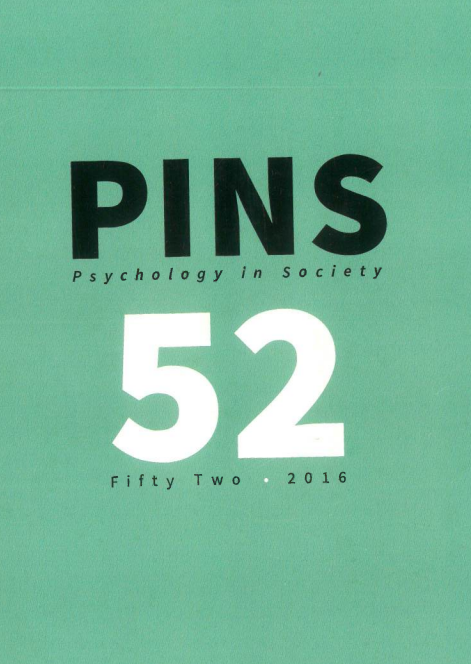Apartheid, clinical psychology, and breaking barriers
DOI:
https://doi.org/10.17159/2309-8708/2016/n52a10Keywords:
apartheid, clinical psychologyAbstract
Accepting an invitation to review the book Apartheid and the making of a Black psychologist was an easy decision despite competing demands and deadlines. It was, after all, a memoir by Chabani Manganyi. As a student, I had great admiration for Manganyi, because he represented hope for aspiring psychologists of colour in a country marked by fervent attempts to suppress Black advancement. My earliest recollection of this icon of South African Psychology relates to his book Being-black-in-the-world (1973), which not only got many hooked on his writing and urged a following of his work, but it provoked a critical engagement with issues of race and the social and political forces that affected the lives of the majority of South Africans. That he published the work at a time when not many were raising these issues in the literature earned him enormous respect.
Downloads
Downloads
Published
How to Cite
Issue
Section
License
This journal is an open access journal, and the authors' and journal should be properly acknowledged, when works are cited.
Authors may use the publishers version for teaching purposes, in books, theses, dissertations, conferences and conference papers.
A copy of the authors’ publishers version may also be hosted on the following websites:
- Non-commercial personal homepage or blog.
- Institutional webpage.
- Authors Institutional Repository.
The following notice should accompany such a posting on the website: “This is an electronic version of an article published in PINS, Volume XXX, number XXX, pages XXX–XXX”, DOI. Authors should also supply a hyperlink to the original paper or indicate where the original paper (http://www.journals.ac.za/index.php/pins) may be found.
Authors publishers version, affiliated with the Stellenbosch University will be automatically deposited in the University’s’ Institutional Repository SUNScholar.
Articles as a whole, may not be re-published with another journal.
The copyright of the article(s) lies with the author(s).
The copyright of the journal lies with PINS-psychology in Society.
The following license applies:
Attribution CC BY-NC-ND 4.0 - https://creativecommons.org/licenses/by-nc-nd/4.0/

